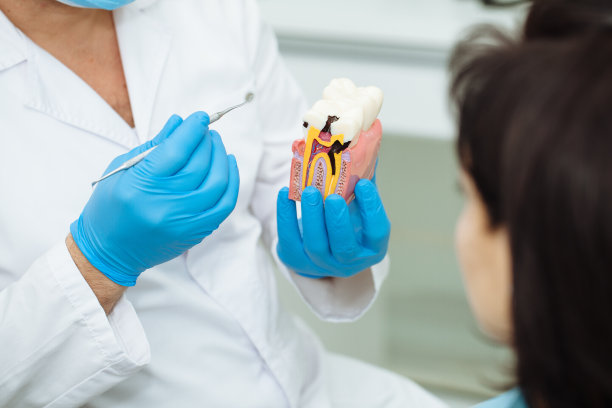Summary: Successful dental filling procedures are vital not only for repairing cavities but also for enhancing long-term oral health. This article highlights key precautions that patients and dental professionals should take before, during, and after a filling procedure. It discusses the importance of selecting a qualified dental provider, ensuring proper hygiene protocols, using quality materials for fillings, and maintaining post-operative care. These measures are crucial in avoiding complications and prolonging the longevity of dental work. By adhering to these essentials, patients can achieve optimal oral health and experience less anxiety during dental visits.
1. Choosing a Qualified Dental Provider

The first step towards a successful dental filling procedure begins with selecting a reputable dentist. A qualified provider not only possesses the necessary credentials but also has extensive experience and a good track record with filling procedures. Researching the dentist’s background, reading patient reviews, and seeking recommendations from friends and family can aid in making an informed choice.
Moreover, it is essential to ensure that the dental clinic adheres to the latest advancements in dental technology and practices. A well-equipped clinic is more likely to provide efficient and effective care, minimizing the chances of complications during the procedure. Regular training for dental staff also plays a vital role in maintaining high-quality service.
Communication is another critical aspect. Patients should feel comfortable discussing their concerns, expectations, and any anxiety related to the treatment. A good dentist will take the time to explain the procedure, answer all questions, and offer reassurance, thereby creating a positive experience for the patient.
2. Ensuring Proper Hygiene Protocols
Infection control is paramount during dental procedures to ensure patient safety and prevent complications. Dental clinics must follow strict hygiene protocols which include sterilizing instruments, utilizing disposable materials, and maintaining a clean environment. Patients should not hesitate to inquire about the clinic’s sanitation practices.
Prior to the filling, dentists often perform a thorough examination of the patients oral health. This includes checking for existing infections and addressing any issues before proceeding with the treatment. Failure to do so may compromise the success of the filling and the overall health of the patient’s mouth.
Additionally, the dentist should use a clean and organized workspace during the procedure. A clutter-free environment not only reflects professionalism but also minimizes the risk of contamination of the dental materials used in the filling process.
3. Using Quality Filling Materials
The longevity and durability of a dental filling greatly depend on the materials used. There are various filling materials available, including amalgam, composite resins, and ceramics, each suitable for different types of cavities and patient preferences. It is essential for the dentist to recommend the best option based on specific dental needs and aesthetic considerations.
Quality dental materials are designed to withstand the pressures of chewing and protect the tooth from further decay. Before proceeding with the filling, patients should discuss the pros and cons of each material with their dentist to ensure they are making an informed decision.
Moreover, keeping abreast of advancements in dental materials is crucial. Ongoing research has led to the development of enhanced materials that offer better aesthetics, strength, and longevity. Patients should inquire whether their dental practice utilizes the latest materials to ensure optimal results.
4. Maintaining Post-Operative Care
After the filling procedure, post-operative care is vital for ensuring the success of the treatment and preventing future dental issues. Dentists typically provide specific instructions on how to care for the newly filled tooth, including dietary recommendations and oral hygiene practices.
Patients should avoid consuming hard or sticky foods for at least 24 hours following the procedure to allow the filling to set properly. It’s also essential to maintain excellent oral hygiene by brushing and flossing regularly, as well as attending follow-up appointments to ensure the filling is intact and the surrounding gums are healthy.
Regular dental check-ups play a crucial role in maintaining oral health. During these visits, dentists can identify potential issues early on and perform routine cleanings to prevent decay. Patients should be proactive in scheduling these visits to secure the longevity of their dental fillings and overall oral health.
Summary:
In conclusion, ensuring successful dental filling procedures requires careful consideration of several factors. Choosing the right dental provider, adhering to strict hygiene practices, using quality materials, and maintaining diligent post-operative care collectively contribute to achieving optimal oral health. By following these essential precautions, patients can enhance their dental experiences and prolong the life of their fillings.
This article is compiled by Vickong Dental and the content is for reference only.
Vickong Dental
Vickong Dental is a large medical group established in Hong Kong in 2008 by professors from well-known medical universities in Guangdong and Hong Kong, as well as medical doctors from key national '985' universities (including Master's supervisors and senior professors). The chain of branches brings together expert dentists with PhDs and Master's degrees from Hong Kong and Mainland China, committed to providing high-quality dental treatment.
"Vickong Dental Practices the University Motto of 'Healing and Serving Society,' with a Stable Operation for Sixteen Years. It Has Been honored with Hong Kong Enterprise Leaders's Choice,' and is a Global Trusted Implant Center for the Nobel Implant System. Recommended by Hong Kong Metro Broadcast and Guangdong Television, it Serves Customers from Over Thirty Countries and Regions, Gaining the Trust and Favor of Citizens from the Guangdong-Hong Kong-Macau Greater Bay Area and Surrounding Cities.

Thousands of customers' unanimous praise
The most recognized and highly recommended dental service by customers in the Guangdong-Hong Kong-Macau Greater Bay Area
We Ensure You Receive Detailed Care and Attention Here
Hong Kong standards, Shenzhen prices, Your Trusted English-speaking dentists

Vickong Dental Medical-Grade Instrument Disinfection Process
Vickong Dental Medical-Grade Instrument Disinfection Process

Vickong Dental Chain: A Warm and Comfortable Environment for Treatment






Appointment Hours

Q&A
Why choose Vickong Dental?
Vickong Dental practices the university motto 「Medicine to Benefit Society」, with each branch bringing together highly qualified dentists with doctoral and master’s degrees from Hong Kong and the Mainland, and has maintained seventeen years of steady operation。Recipient of 「2024 Hong Kong Enterprise Leaders Brand」, 「2025 Hong Kong Enterprise Leaders Brand」, a Nobel Biocare Global Trusted Implant Center, and a brand recommended by Metro Radio Hong Kong and Guangdong TV。
To date, we have served customers from more than thirty countries and regions,earning exceptionally high word-of-mouth recognition and trusted recommendations from residents across the Guangdong-Hong Kong-Macao Greater Bay Area and surrounding cities
We have eight major branches in Zhuhai、Shenzhen,and a consultation and service assurance center in Hong Kong,so you can book a free consultation at any time for any questions,which is very reassuring.
If I do not accept the quotation after the CT scan, will I be charged??
No! As long as the actual treatment has not started, you will not be charged any fees.
Will there be any additional charges during the treatment process?
No, there won’t be any additional charges. Before treatment begins, we will clearly explain the treatment plan and its corresponding fees. Only after the patient agrees and signs the consent form will we proceed with the dental service.
Can I pay in Hong Kong dollars?
Yes. Vickong Dental accepts payment in Hong Kong dollars. The amount will be converted based on the exchange rate of the day, and the applicable rate will be clearly communicated to you in advance.
Can I reschedule my appointment at any time?
Yes. Please contact us via **WeChat** or **WhatsApp** as early as possible, providing your original appointment time and details, along with your preferred new date and time slot for rescheduling.













